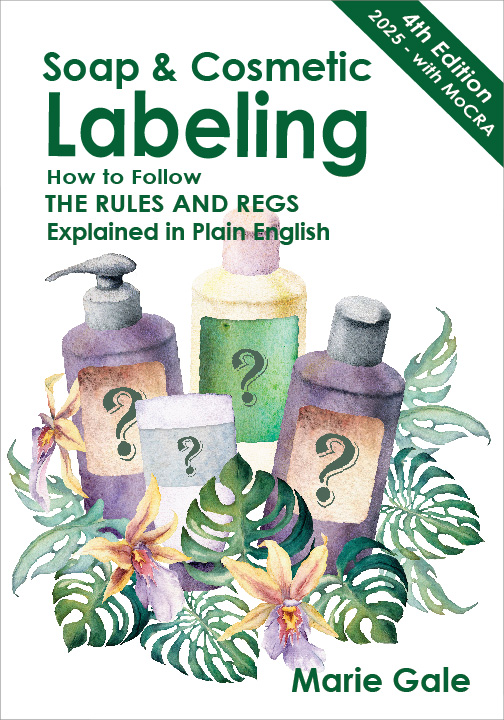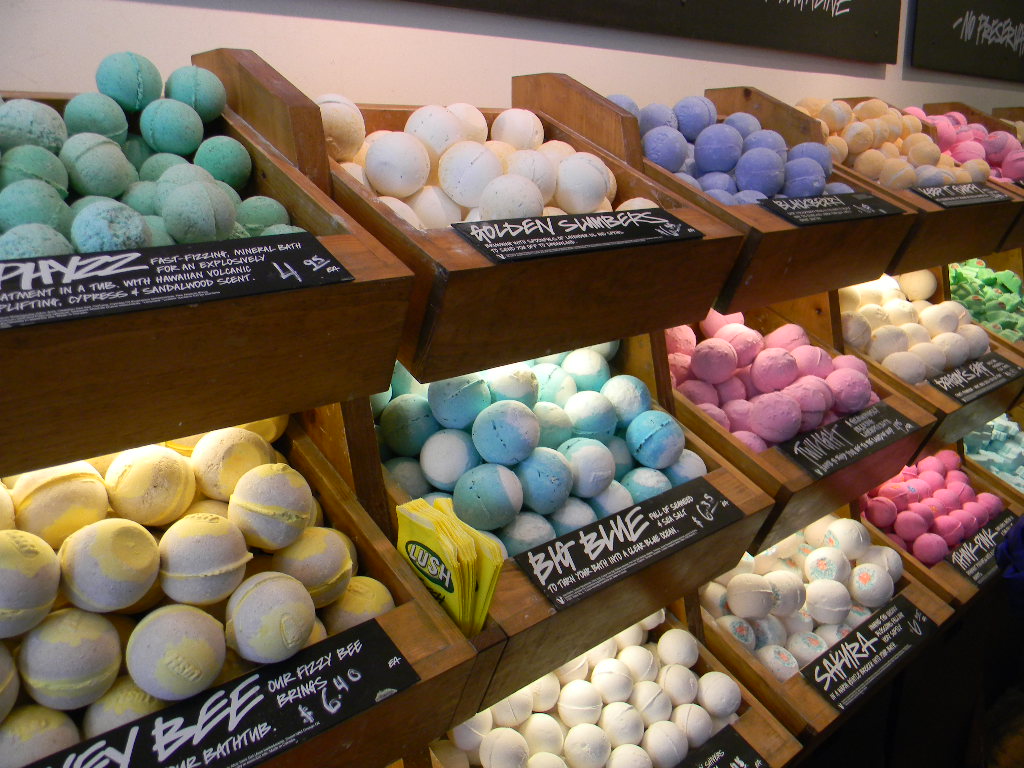We all know that the Fair Packaging and Labeling Act requires that all consumer products (including cosmetics) have the identity of the product and the net contents on the front, as well as the name and address of the manufacturer somewhere on the label. Cosmetics also require a list of their ingredients.
Here’s a question that has come up more than once: How do stores that carry unwrapped products in bins with just signs get away with it?
Good question.
Let’s take a look at how they might (or might not) be complying with the actual regulations or at least the intent of the law.
What is the Intent of the Law?
The statement of intent on the Fair Packaging and Labeling Act (which underlies the “net weight declaration” regulations for the FTC and the FDA) says:
Directly from the regulations:
Informed consumers are essential to the fair and efficient functioning of a free market economy. Packages and their labels should enable consumers to obtain accurate information as to the quantity of the contents and should facilitate value comparisons.
15 USC 1451
[emphasis added]
So, the idea is that the consumer can be accurately informed of the net contents, so they can decide if it’s fairly priced and of good value (to them). Prior to the law, products didn’t always say how much was in the package—think of a big box with small contents, or the infamous double-walled jar that wass 2-3 times bigger on the outside than on the inside.
The FPLA specifies that:
Directly from the regulations:
The net quantity of contents (in terms of weight or mass, measure, or numerical count) shall be separately and accurately stated in a uniform location upon the principal display panel of that label…
FPLA
What About the Regulations?
Truth is, the regulations were written before anyone was selling cosmetic-type (or even soap-type) products loose and in bins or baskets. At the time they were written, as far as I can tell, there was a general expectation that all products sold (except for some food products like fruits, vegetables, and meats) were individually packaged. And you’ll note that there are some regulations about how fresh fruit is displayed, priced, and how it shows on your register tape that does give accurate quantity information.
There isn’t a “law” that says that all products must be packaged. There IS a law that says that the consumer must be informed of the quantity of contents.
There are regulations in place implementing the law, which state how the quantity of contents must be displayed on a packaged product. However, there aren’t regulations on what to do with an unpackaged product and, to the best of my knowledge, there aren’t any court cases or other guidances that clarify any “official” position on it.
What Would Be “Best Practice”?
Taking into account the stated intent of the law, the existing labeling regulations for consumer commodities (including cosmetics), and comparable regulations for other unpackaged products, I would think1 the best practices would include:
- Informing the consumer of the net contents.
- Providing the consumer with the name and address of the manufacturer, in such a way as they have it when they get home (in case there are any problems).
- For cosmetics, providing the ingredient list to the consumer on the display in some fashion (in case the ingredients would affect their purchase one way or the other).
- For cosmetics, providing the consumer with the ingredient list for each product purchased (so when they take it home they will have the ingredient list in case of any issues).
How Do They “Get Away” With It?
I suppose there are some retail stores (and maybe people at craft shows and fairs) that intentionally (and often successfully) try to deceive or mislead by omitting necessary information and “get away with it” because there just aren’t enough state and federal inspectors to catch everyone. I truly believe, though, that people and businesses trying to intetionally deceive are in a very small minority.
Then there are those stores and individuals who don’t understand the laws and regulations… but who would try to follow them if they knew what they were. They do usually attempt to inform their customers, with signage and verbally, and they aren’t trying to hide anything.
Finally, there are the stores that have figured out a way to reasonably comply with the intent of the law. The last time I was in a Lush store (years ago) the signs were informative and when I purchased, the cashier printed labels (like deli labels) for each product that I purchased. It showed the name of the product, ingredients, weight and price, and (of course) had the Lush logo and information on it. When I looked at pictures of their products online, there were many Lush items that were in bags with deli-like labels. To me, that seems to fulfil the intent of the law and the regulations.
What Can You Do?
If you are selling “naked” products, make sure you have signage up that tells the net content of the products (“4 oz soap bars” or “6 oz bath bombs”) and (for cosmetics) have the ingredient list clearly displayed.
When a consumer purchases, provide each one with the required information including:
- what the product is,
- the net contents,
- ingredient declaration
- your name and address
Preprinted information that gets tucked into the bag would work, or stickers that go on the outside on a single size bag for the individual product. If you sell enough, preprinted bags for the soap or bath bombs that contain all the information would be the easiest way to go.
Not only is it a requirement to provide that information to the consumer—it’s also good marketing! After all, how is the consumer going to come back to you and buy more of that wonderful product if they don’t remember what it is or where they got it!

Shameless plug!
To really be able to create your own labels that comply with the regulations, get my book from Amazon and use it.
4th Edition – Released March 5, 2025!!!
Or order directly from me (and get a signed copy)!
- Remember, I am not an attorney and am not providing legal advice here. This is purely information based on my understanding and interpretation of the statutues and regulations. If you are going to display naked cosmetic products in bins in a retail environment, it might be prudent to contact an attorney familiar with the issues for definitive legal advice. ↩︎


Leave a Reply
You must be logged in to post a comment. Login/Register